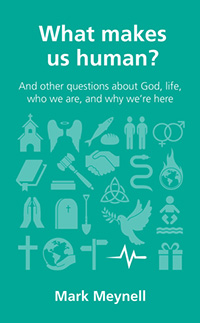From the macro to the micro, identity has become more of a construction and less of a given. Even with gender, social and political authorities prioritise one’s feelings over one’s DNA, sometimes advocating medical measures that attempt to conform individuals’ physical reality to their emotional state. In 2015, Statistics New Zealand added a “gender diverse” category to “male” and “female” for its future descriptive work. It calls gender identity a “complex issue” that is separate from biological sex.
What God has revealed regarding his plan for a fallen creation and his pattern for our lives informs a Christian view of sexual identity. This often clashes with a culture that believes we are inherently good, and that freedom comes from blurring lines rather than colouring boldly inside intricate patterns that have been designed by a creator.
We don’t have the space to discuss the theology, psychology and ethics of what really has become a complex issue. However Rob Morton, Associate Pastor at Hastings Baptist Church, has drawn a helpful map of the landscape. Understanding these definitions, and applying a biblical understanding to them, may keep us from blindly sharing our opinions, criticism or support.
Last year I was asked to give a seminar on a Christian response to transgenderism. I think Christians often respond to hot topics in one of four ways: ignore them, adopt the most popular viewpoint, get angry and defensive, or engage biblically. I vote for the last one!
To engage biblically with this topic, I had to “listen with both ears.” That means I had to hear those who understand and experience gender dysphoria, and I also had to hear what the Bible and Christian theology says about sexuality and gender. Here’s what I found.
Issues of gender identity and sexuality deal with the brain, heart, body and presentation – or how we express ourselves.
Brain = gender identity (do I see myself as male / gender fluid / female?)
Heart = sexual orientation (am I attracted to females / both genders / males?)
Body = sexual anatomy (am I biologically male / intersex / female?)
Presentation = self expression (do I present myself as masculine / fluid or outside cultural norms / feminine?)
Classifications
Transvestite – when someone presents/dresses as other than their biological gender. This doesn’t necessarily mean they are transgender.
Gender Dysphoria – the distress experienced by someone whose psychological and emotional gender identity (brain) doesn’t match their biological sex (body).
Transgender – when brain and body are “incongruent” – a wide term that speaks about how people might experience and present/express this incongruence.
Cisgender – a term for someone whose gender identity (brain) and biological sex (body) match up.
Transsexual – someone who believes they are born in the “wrong body” and have taken steps to deal with this, e.g. transitioning with hormone treatment, or sometimes gender re-assignment surgery.
Transgenderism is currently a big issue in the media. But how common is it? Some statistics outside New Zealand claim:
• 1 in 10,000 = people who experience gender dysphoria
• Less than half of those will seek help (most just try to quietly “cope”)
• A small percentage of those seek hormone therapy and/or surgery
If that is true for us, roughly 400 New Zealanders might be transgender.
How to engage
No one really knows what causes gender dysphoria. Most experts agree that it can be a difficult and painful struggle. How can Christians engage with people from the transgender community?
1. Listen. Everybody’s experience and story is different.
2. Be clear on the gospel. Our “good news” is not “God accepts people who are struggle-free and have figured it all out.” Our good news is about a God who meets people where they are and offers a fresh start and help to become more like Jesus.
3. Treat people as people, not problems. One author said, “Too often Christians can focus almost exclusively on the very aspect of the person with which we are most uncomfortable!”

Helpful books
Understanding Gender Dysphoria
by Mark Yarhouse (IVP)
Sex and the iWorld
by Dale Kuehne (Baker Publishing)
What Makes Us Human?
by Mark Meynell (The Good Book Company)






